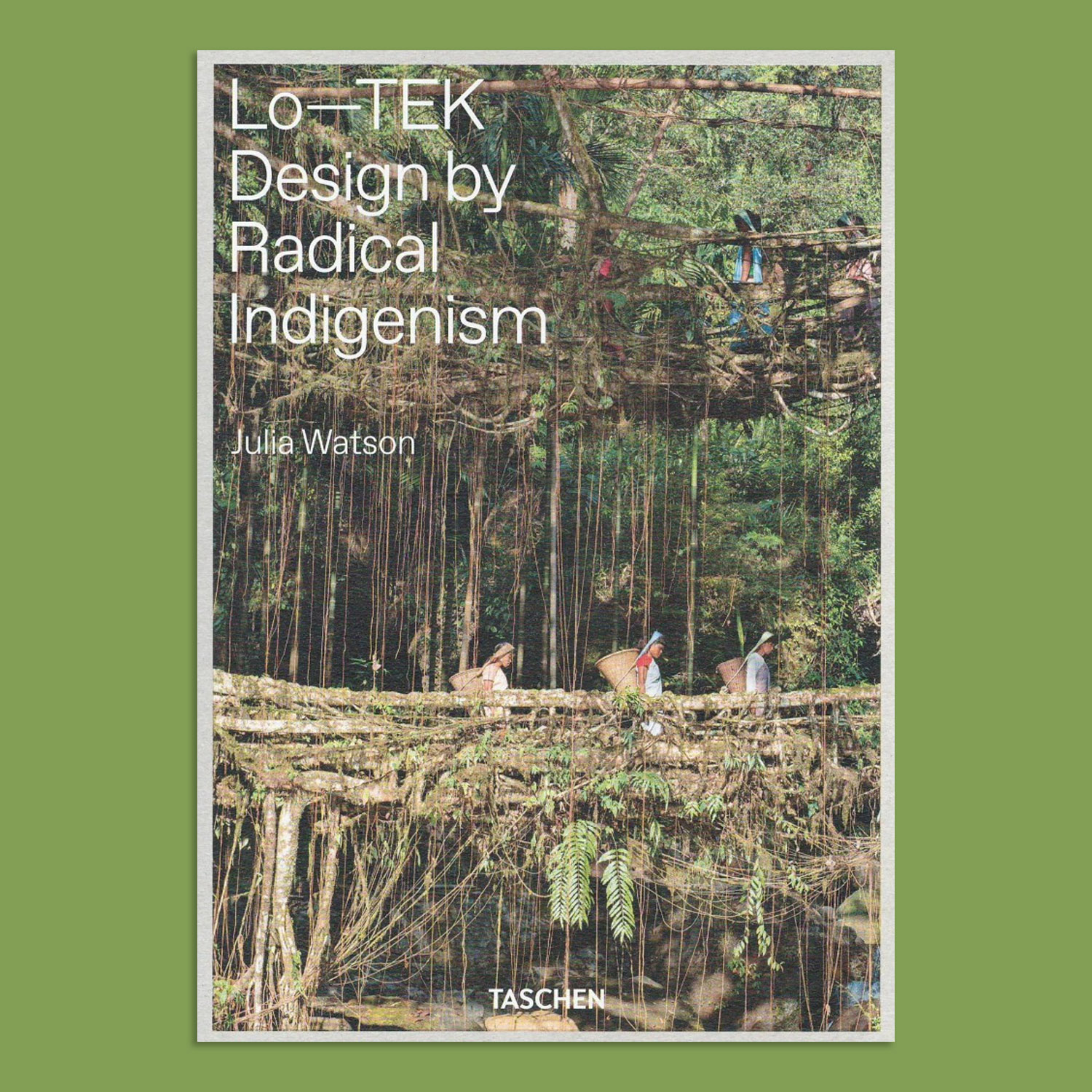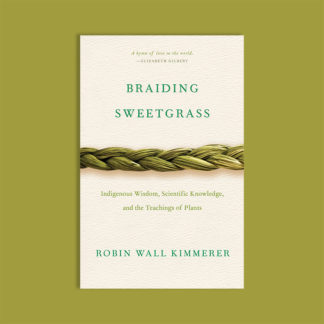Lo―TEK. Design by Radical Indigenism
$50.00
by Julia Watson
Three hundred years ago, intellectuals of the European Enlightenment constructed a mythology of technology. Influenced by a confluence of humanism, colonialism, and racism, this mythology ignored local wisdom and indigenous innovation, deeming it primitive. Today, we have slowly come to realize that the legacy of this mythology is haunting us.
Designers understand the urgency of reducing humanity’s negative environmental impact, yet perpetuate the same mythology of technology that relies on exploiting nature. Responding to climate change by building hard infrastructures and favoring high-tech homogenous design, we are ignoring millennia-old knowledge of how to live in symbiosis with nature. Without implementing soft systems that use biodiversity as a building block, designs remain inherently unsustainable. Lo―TEK, derived from Traditional Ecological Knowledge, is a cumulative body of multigenerational knowledge, practices, and beliefs, countering the idea that indigenous innovation is primitive and exists isolated from technology. It is sophisticated and designed to sustainably work with complex ecosystems.
With a foreword by anthropologist Wade Davis and four chapters spanning Mountains, Forests, Deserts, and Wetlands, this book explores thousands of years of human wisdom and ingenuity from 18 countries including Peru, the Philippines, Tanzania, Kenya, Iran, Iraq, India, and Indonesia. We rediscover an ancient mythology in a contemporary context, radicalizing the spirit of human nature.
Hardcover | 420 pages | TASCHEN | 2020
Academic and author Julia Watson is the Principal and Founder of Julia Watson Studio, an experiential, landscape, and urban design studio, as well as a Director and Co-Founder of ‘A Future Studio’, a collective of conscious designers with an ethos towards global ecological change. She teaches Urban Design at Harvard and Columbia University. After graduating from Harvard with the highest award for her work on conservation and spiritual landscapes, she has been published in Nakhara Journal, Water Urbanisms East, World Heritage Sites and Living Culture of Indonesia, and co-authored the Spiritual Guide to Bali’s UNESCO World Heritage with Dr. J. Stephen Lansing.
In stock




